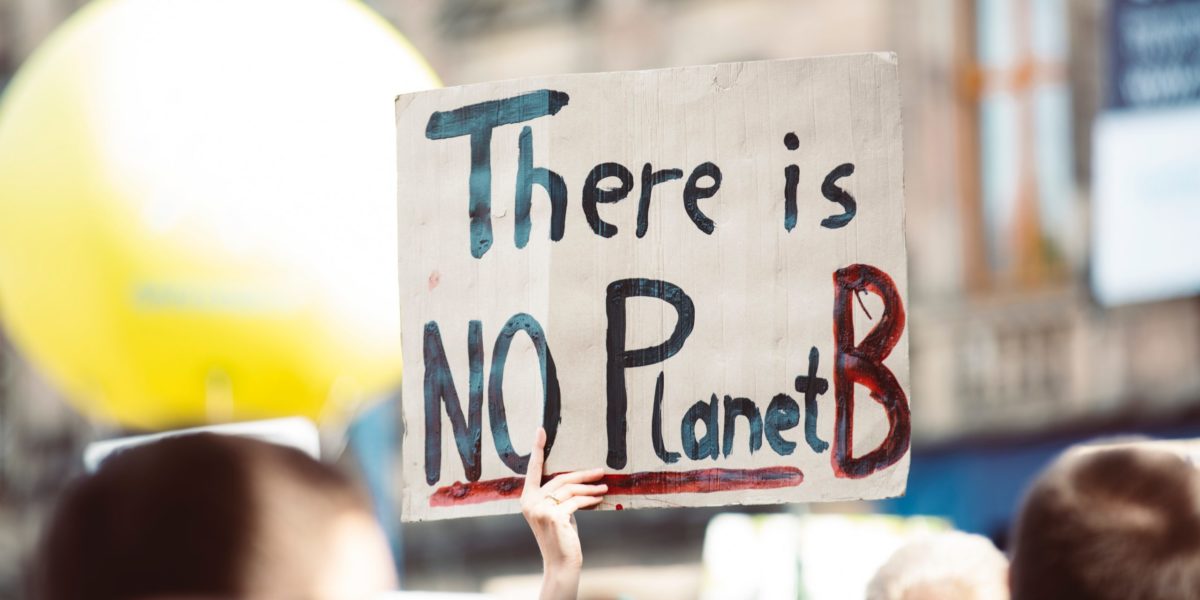While the world watches as Ukraine is invaded by Russian troops, the impact of the war on the climate crisis in Europe remains in question.
The latest report by the United Nations Intergovernmental Panel on Climate Change sends a stark reminder to leaders across the globe that the hourglass to mitigating the climate crisis is quickly ticking.
The report warns of what they consider unavoidable climate hazards between now and the 2040s due to climate change, including “ecosystem collapse, species extinction, deadly heat waves, and floods.”
“This report is a dire warning about the consequences of inaction,” said Hoesung Lee, Chair of the IPCC, in a Monday statement.
“It shows that climate change is a grave and mounting threat to our well-being and a healthy planet. Our actions today will shape how people adapt and nature responds to increasing climate risks.”
Wilfrid Laurier University professor and co-lead author of the report’s seventh chapter, Robert McLeman, and his co-lead, sanitation scientist, Guéladio Cissé, along with a team of a dozen scientists and epidemiologists spent the last four years working on a voluntary basis to complete their contribution to the report.
“We assessed over 1,600 scholarly publications that investigated how climate change affects the things we are responsible for,” McLeman said in an interview with rabble.ca. “Essentially, we were looking at all the different ways in which human well-being is potentially affected by changes in the climate.”
“Climate change is likely to make the spread of many vector-borne diseases more commonplace,” he said, including anything from malaria, to increased Lyme disease in North America, and encephalitis in Europe.
Chapter seven of the report, which looks at the effects of climate change on physical and mental health, migration, conflict, and displacement, found that extreme heat will create “an increased pressure on health care systems,” life-threatening conditions for those who McLeman noted have pre-existing conditions like cardiovascular disease and respiratory illnesses.
Previous reports didn’t focus on mental health according to McLeman. But in the latest report, researchers found three “pathways by which human mental health is affected.”
One pathway looked at how surviving a natural disaster could cause economic and physical injuries causing mental health issues, as well as a greater risk of long-term anxiety, depression, and post-traumatic stress disorder from sustaining trauma in an extreme weather event.
Other pathways include the moral injury of watching loved ones suffer from extreme weather events, and the emerging concept of “climate anxiety” that affects youth who fear their futures will be disrupted by the climate crisis—a fear that McLeman concluded is “statistically well-founded.”
“In our report, we warned governments that they could face potential increased demands on mental health care systems, which is something that they tend to under invest in the first place,” he said.
Canada running out of time to mitigate climate emergency: NDP
For the federal NDP, the report confirms that Canada is running out of time when it comes to the climate crisis.
In a statement issued Monday, NDP critic for the environment and climate change, Laurel Collins, and the critic for natural resources, Charlie Angus, called the report “yet another dire warning that all levels of government have only a narrow window to implement key climate change mitigation and adaptation measures to secure a liveable future.”
Collins and Angus pointed to the negative consequences from climate change already affecting Canadians, “from historic heat waves and flooding in British Columbia, to droughts in the prairies and flooding in Atlantic Canada.”
Offering some legislative advice, Collins and Angus called on the Liberals to “stop handing out money to the oil and gas sector” and continue investing in sustainable, renewable energy.
The New Democrats are also planning to introduce legislation “that would refocus the Canada Infrastructure Bank to help communities adapt to and mitigate the impacts of climate change.”
The party is also calling for a National Freshwater Strategy, urging the government to retrofit all buildings in Canada by 2050, and modernize and expand public transit and zero-emissions vehicles in Canada.
The IPCC concluded that even an average global warming increase of 1.5 degrees celsius – widely accepted as a “relatively safe target for rapid decarbonization efforts,” – is no longer enough to avoid hazards related to climate change.
Going over the 1.5 degree target, even temporarily, could lead to the “release of additional greenhouse gases,” noting “some will be irreversible, even if global warming is reduced.”
Up to 140 million people displaced by 2050 due to extreme weather events
McLeman noted that 30 million people worldwide were displaced in the year 2020 alone due to extreme weather events like floods, drought, and wildfires.
What’s more concerning, he added, is that the World Bank has projected that number could quadruple to 140 million people by 2050 if “we do nothing to reduce greenhouse gas emissions [as well as] invest in adaptation and sustainable development.”
In terms of solutions, McLeman suggests improving universal access to basic health care, expanding public transportation and spending more on green infrastructure to ultimately get gasoline-powered cars off of roads entirely. These adaptations wouldn’t just reduce greenhouse gas emissions, he said, but also improve local air level quality.
“We don’t have a lot of time to get to work on this,” McLeman concluded.
“But in the meantime, we also need to be making our cities and our health systems more resilient because the disruptions are already starting to happen and they’re only going to grow worse.”



